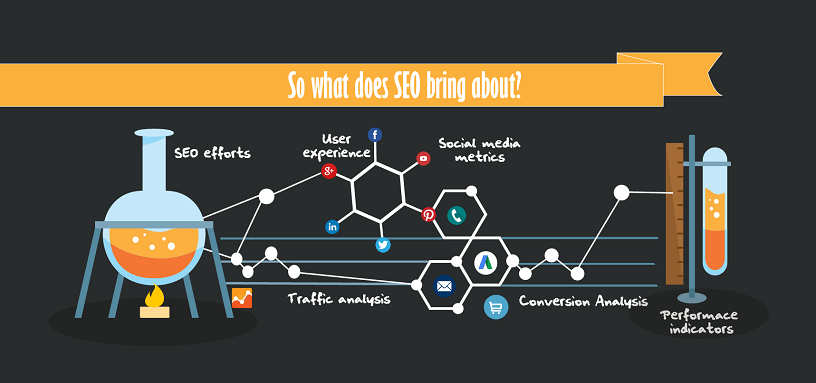First of all, I would like to confess – this is the first article published on the SEOlium blog, and the first article about SEO so far. So, you should be aware we realize the fact that we carry a great responsibility, have faith in us and… Wish us luck!
In the early period of the Internet when there were “only” few websites (several million in fact, as compared with the current figure of approximately 20 billion) – the search engines were born and, although not sophisticated at all, they indexed the web content quite well and served as a starting point for online navigation thus representing an important source of traffic for websites. At that time, the professionals realized the need for a conscious control in increasing the visibility of websites in the search engine result pages, which generated a new science: SEO – Search Engine Optimization, aimed at increasing the qualitative traffic of a website.
This relatively new “industry” implies a set of operations performed by the promotion team in order to increase the ranking of a website in the search results, for specific search keywords or expressions that are interesting and relevant from a business perspective.
This takes place by controlling and improving the “ranking criteria”, i.e. factors that, taken as a whole – are analyzed by the search algorithm and contribute to better positioning in the result pages. Subject to these criteria, SEO can be of two types:
|
Internal optimization (On-site SEO) The promotional efforts are directly applied to the website in question. They depend, but more importantly – can only be influenced by the SEO team. For example: carefully writing the copy for titles and descriptions, eliminating errors, improving the loading speed, image processing, optimizing the structure of URL addresses and of internal links, using ads moderately, etc. Generally speaking – improving the visitors’ experience. |
External optimization (Off-site SEO) Where promotion is not directly related to the SEO team, but rather the collective will of the Internet. This means that based on the objective reality regarding the quality of a website – search engines always try to find measurable signals with regard to the relevance and importance of the candidate webpage in relation to the analyzed search expression. These signals refer to the quality, performance and popularity indicators. Examples may include: the number and quality of links that point to the analyzed page, number of social interactions (Facebook likes, shares, comments, Tweets, +1s etc.), context where mentions arise, the credibility and authority of sources, the global and local search volume for the respective keywords, etc. |
Due to the huge commercial potential of the Internet – shortly after the establishment of search engines, the so-called “spammers” emerged – people who practice the immoral or illicit manipulation of ranking criteria in order to improve the SEO quality scores, hence the visibility of websites. On the short run, these techniques may work, but practice shows that search engines are constantly fighting with the online spam and they always eliminate potential “holes” in the system. At the same time, they publish official documents describing the “WebMaster Guidelines”, i.e. moral, legal, permitted and recommended promotion techniques that every website owner should take account of. Failing to follow these principles may get a website penalized or it can be even banned from the search engine index forever.
Subject to the degree of morality of the techniques used during the website promotion process, SEO can be divided in:
 White hat SEO
White hat SEO Black hat SEO
Black hat SEO Grey hat SEO
Grey hat SEOFinally, as the Internet evolved, the concept of SEO grew as well, so now it covers other branches that help increase the traffic of a website by any means, not limited to just organic searches (natural and unpaid search results)
In the context of those mentioned above, we can state that SEO is not just excellent content or just website optimization. SEO is not manipulation neither is it magic. It is rather a harmonious combination of science, poetry, and magic. The objective truth is that SEO is not boring. Yes. That is what SEO is not. It is rather a sport where the degree of satisfaction is superlative when you win and “mediocre” :-) when you lose.

